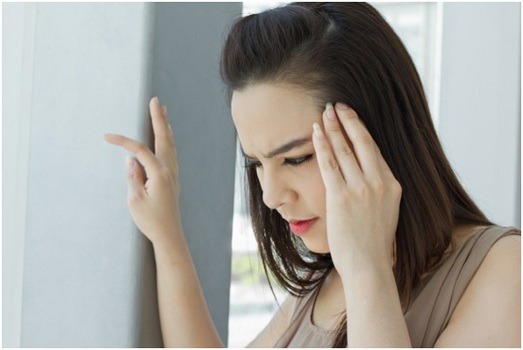Vertigo is a common medical condition experienced by a majority of the population. It is likely to affect anyone but its significance is most likely to be found in women as compared to men. Age factor plays a significant role in vertigo sensations and some people consider it an age-related disorder. But it’s a myth, not fact.
Vertigo is not an ailment or disorder; it is a symptom of various underlying causes. An inflammation, infection or disorder in the inner ear or vestibular nerve indicates peripheral vertigo. Whereas central vertigo conditions occur due to problems in the brain or cerebellum.


A spinning sensation where a room seems to spin around or you may experience as you are spinning on a twirl, without any actual movement, such a condition is termed as vertigo. As soon as vertigo spells hit a person, he may lose balance with spinning sensations and the world starts looking blurry. Nausea and vomiting are the most common vertigo symptoms that occur with spinning sensations.
Living with vertigo (Chakkar aana) is not as easy as it seems to the outside world. Vertigo spells recur without any warning signs and make it difficult to carry daily chores or official tasks. Simple activities like walking and running seem tiring when one is under the scan of vertigo condition. Vertigo conditions can even prove to be a life-threatening cause if you are on wheels amidst traffic. It is advised to refrain from driving if you are experiencing repeated episodes of vertigo bouts.
Mild vertigo symptoms are controlled with certain home remedies and vertigo exercises. If the symptoms are intense and you are experiencing repeated vertigo bouts frequently, it is advised to seek medical help immediately. An expert neurologist will carry various vertigo tests like ENG, VNG, Caloric test, etc. so on to examine the underlying vertigo cause. Once the underlying cause for vertigo is diagnosed, your doctor will prescribe you the right drug to treat the underlying cause or suggest you with various therapies as vertigo treatment.
Vertigo symptoms
Vertigo (Chakkar aana) symptoms start from spinning sensations where a person feels the nearby objects are spinning or he is spinning all by itself. Vertigo is a symptom itself of various ailments but it can lead to the onset of other symptoms alongside as well.
Here are some common vertigo symptoms:
- Difficulty in maintaining balance
2. Dizziness or lightheadedness
3. Nausea and vomiting
4. A feeling of motion sickness
5. Ringing sensation is known as tinnitus where a person experiences ringing, hissing or whistling sound in the inner ear.
6. Fullness in the inner ear
7. Severe headaches
8. Absurd sweating
9. Blurred vision
10. Difficulty in maintaining eye movement known as nystagmus.
Vertigo causes
Vertigo is often caused by inner ear problems. A large percentage of the audience experiencing vertigo bouts are diagnosed with peripheral vertigo.
Here is a list of some common vertigo causes:
1. Benign paroxysmal positional vertigo (BPPV)
A large number of patients diagnosed with spinning sensations are suffering due to Benign paroxysmal positional vertigo (BPPV). It is one of the most common underlying causes of vertigo which can occur in anyone irrespective of age and gender.
BPPV is caused when calcium crystals are deposited in the inner ear which results in blocking the vestibular nerve responsible for sending sensory signals from the inner ear to the brain that regulates body balance. The blockage in sending clear messages to the brain results in making a person feel dizzy with spinning sensations.
2. Labyrinthitis or vestibular neuritis
Labyrinthitis or vestibular neuritis is an inner ear problem that can occur due to simple viral infections like cold or flu or middle ear infection that flows in the inner ear. It is one such possible cause of vertigo condition in a patient. A person suffering from Labyrinthitis or vestibular neuritis experiences loss of balance and recurring vertigo spins. It may even affect the hearing ability of a person if the case turns intense.
3. Meniere’s disease
When a person experiences an excess fluid build-up in an inner ear such a condition is known as Meniere’s disease. It is likely to occur in both the ears and either of the one. Excess fluid build-up in the inner ear directly affects the hearing ability of a person and sometimes even results in loss of hearing ability if the condition is chronic. Excess fluid in the inner ear results in increased pressure thereby making a person unable to maintain balance with sudden vertigo bouts. Meniere’s disease is one of the diagnosed causes of vertigo spells.
4. Acoustic neuroma
Acoustic neuroma is a condition when a person has a tumor in the nerve tissue of the inner ear. It is one such condition that may result in spinning sensations.
Apart from the major vertigo causes, vertigo can even occur due to some less possible causes as well. Head or neck injury, problems in the brain stem, stroke or tumor, side effects of certain medications and migraine headaches are some of the less common causes that lead to vertigo.
Vertigo Treatment
To treat your vertigo spells, diagnosis of the underlying cause of vertigo is a must. It is advised to seek medical help and consult an expert neurologist for diagnosis of the condition before self-medicating. Your doctor will seek your complete medical history and ask you to undergo various vertigo tests to examine the condition closely and accurately. He would suggest you with the right vertigo treatment and prescribe right vertigo medicines after examining the underlying vertigo cause. Vertin tablet, Meclizine Tablet, Stemetil Tablet, Stugeron Forte Tablet, are some of the commonly prescribed drugs that help in treating vertigo conditions. Mild vertigo conditions are treated well with certain vertigo home remedies like drinking ginger tea twice a day or including vitamins in the daily diet and practicing repositioning maneuvers like Epley and Brandt Daroff exercise in the daily regime. Your doctor will guide you with the right techniques and procedures of vertigo exercises that should be followed daily for up to three weeks to alleviate vertigo symptoms completely.









